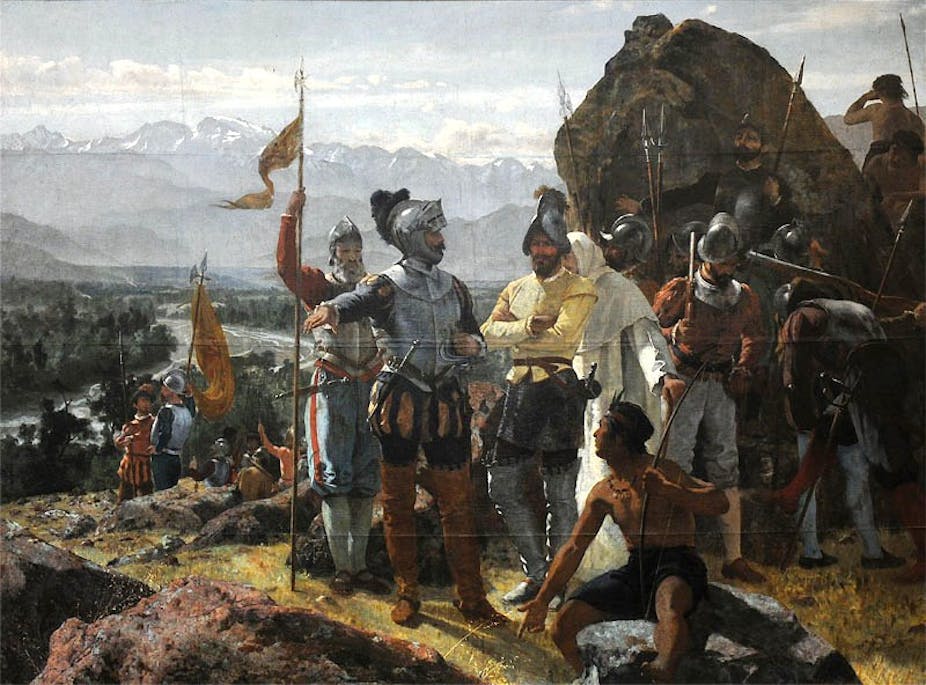
Mining endeavors in these South American countries have relied on indigenous men as their source of labor. This practice began as early as the Spanish colonization of these regions and still continues to this day. In the past, many of these mining companies have exploited these workers in dangerous conditions for limited pay. In addition, they attempted to strip them of their cultural backgrounds by limiting their interaction with their communities and families. Due to the injustice these miners faced, many of them have unexpectedly quit working which poses issues for the mining companies.
This source highlights some of the mine owners’ responses to their workers leaving. The owners explain their mines aren’t functioning due to the lack of reliable workers to keep up production. These owners suggest various new techniques and punishments for deserting laborers as well as for persons who hide them from these companies. This source simply offers the point of view of the mine owners who are losing money from their lack of laborers; however, this piece does not highlight the treacherous and unjust conditions miners face from company management as well as in the mines.
“We, the undersigned miners, present the following request to your Worship with every due respect, thanking you first and foremost for the distinguished and tireless efforts you have invested in spreading and promoting the mining industry to help boost both our community and the Royal Exchequer of Spain. We find ourselves obliged to report to your Worship, however, that the disturbances caused by our peons are preventing us from continuing to carry out these activities as we all so desire, as they are insolent and fail to fulfill their obligations more and more every day. Furthermore, since they are in such short supply, they make many demands: as is common knowledge, they refuse to take on work without being paid
two, four, or sometimes eight months’ salary up front to pay off their debt and attend to their needs, and this advance is almost never repaid in labor; rather, they frequently desert their worksites. . . . At times, mining activities must be suspended; at others, we miners must take over their duties, persevering through days of hard work that reap no benefit because of the shortage of laborers. This lack is aggravated by the fact that we must search for the peons far from their worksites, removing them from the custody of others who aid them either in friendship or in the interest of using their services.
With the aim of remedying such serious damages, the laws of this kingdom contain provisions regarding the steps to be implemented when a laborer flees, and when he abandons one mining area for another, and it would be fitting to order that [local] officials . . . be responsible for enforcing these provisions. \ Moreover, since we know that mining work is usually delayed because the peons are protected by this valley’s other miners and residents who bring them under new labor agreements, it would be fitting
to [emit an edict] that provides that nobody may rent a peon . . . without the peon first presenting a document from his last employer stating that he has carried out each and every one of the obligations provided under their agreement, and that, if some debt remains, it shall be delivered in straightforward terms, with payment of any damages incurred to the first employer because of that laborer’s absence. . . .
Those who hide the said peons in their ranches and mining areas deserve harsher punishment. Therefore, it would also be fitting to emit an order that prohibits housing them for more than one hour, even for the purpose of providing lodging, and that all persons, including the caretakers of haciendas and farms, must take special care to send these peons on their way. And if the peons refuse to leave, the said persons must immediately inform the authorities, who in turn must send the peons to the Copiapó jail to receive fifty public lashes in the pillory, with the same punishment applicable to those who fail to send the peons away or inform the authorities, unless they are Spaniards, in which case the corresponding fine shall be imposed.
We are fully aware of the practical difficulties this order entails: since your Worship is the only judge residing in Copiapó, it would be incredibly burdensome for those who wish to report deserters hiding on ranches to travel great distances to notify you, and likewise, it would be very burdensome for you to have to go chase after them, leaving the many other matters required of you unattended. All of these problems could be solved by appointing a magistrate specifically dedicated to these matters in [various localities in the area]. To this end, an edict could be posted in their respective jurisdictions to announce their appointment, stating their responsibility for seeing to this matter. . . . Through this edict, . . . we should be able to eradicate the kinds of disturbances described above. . . .”
Translated by Rachel Stein
Mine Owners of Copiapo, n.d. “The Insolence of Peons.” In The Chile Reader: History, Culture, Politics. Edited by Elizabeth Quay Hutchinson, Thomas Miller Klubock, Nara B. Milanich, and Peter Winn. Page 117-119. Duke University Press.